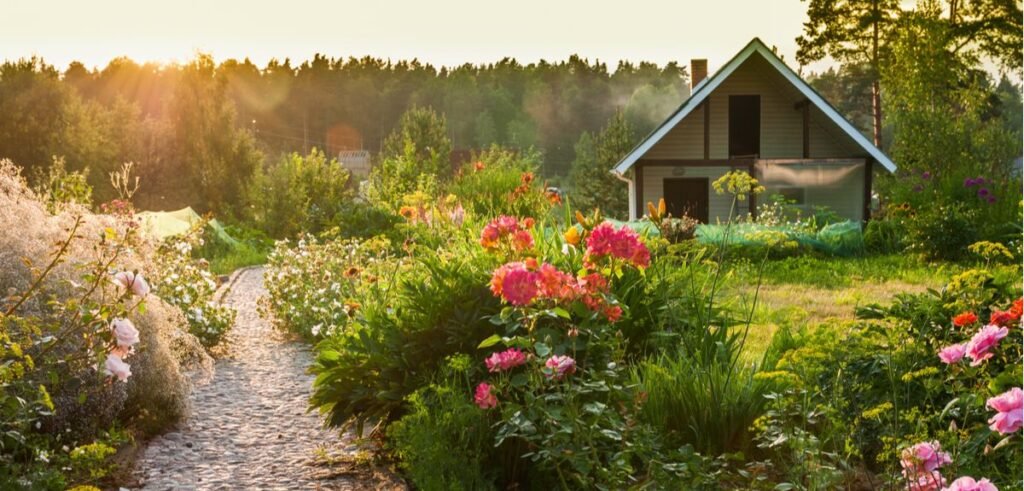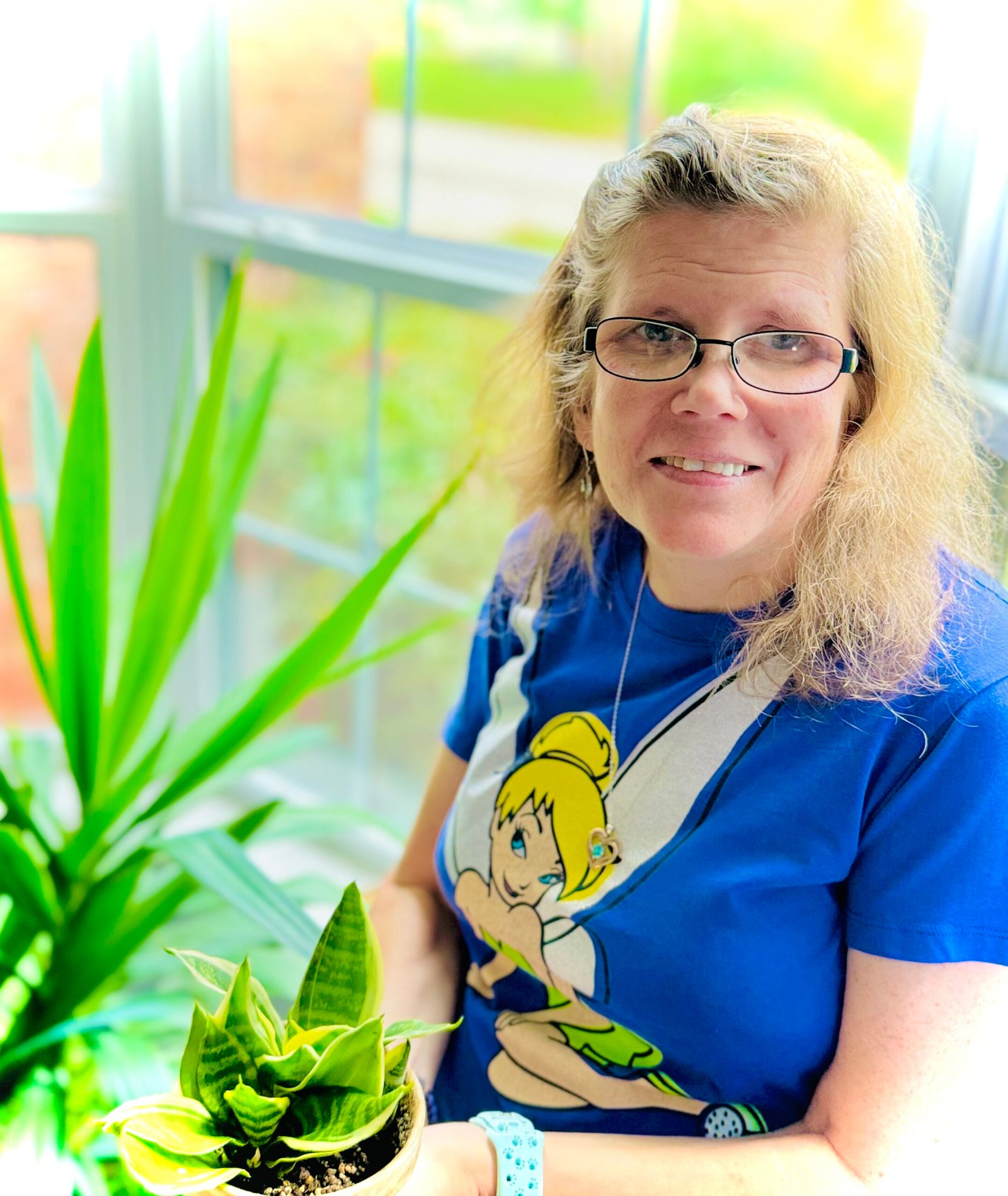Have you ever found yourself lying in bed, staring at the ceiling, willing sleep to come? I have, and I know how frustrating it can be. But what if I told you that a solution might be growing in your backyard or even on your windowsill? Gardening for better sleep just might be your answer!
In this article, I’ll guide you through how gardening can lead to better sleep. Together, we’ll explore the plants that are known to promote restfulness and how they can be incorporated into your garden or home.

The Connection Between Nature and Sleep
It’s interesting how our bodies respond to nature. The sight of greenery and the feel of soil between our fingers can have a calming effect that prepares us for a good night’s sleep. The rhythmic activity of tending to plants can soothe the mind, allowing us to wind down after a long day.
How Nature Influences Our Sleep
Nature has a profound effect on our circadian rhythms. Exposure to natural light during the day helps regulate our sleep-wake cycles, while the act of gardening can help reduce stress levels. Stress, as we know, is a major factor that keeps many of us tossing and turning at night. By immersing ourselves in the natural world, we can create an environment that promotes relaxation and sleep. Plants are great to have in the bedroom and help promote better sleep.
The Therapeutic Effects of Gardening
Gardening offers therapeutic benefits that go beyond the physical act. It engages our senses – the sight of colorful flowers, the smell of fresh herbs, the sound of leaves rustling in the breeze. This sensory stimulation can lead to a state of mindfulness, which is crucial for achieving restfulness.
Plants That Promote Better Sleep
Certain plants have been scientifically proven to improve sleep quality. These plants can either be grown in an outdoor garden or kept in indoor pots to create a serene sleeping environment. Let’s explore some of these green companions.
Lavender
Lavender ranks high on the list of plants that promote better sleep. Its soothing scent is known to reduce anxiety and improve the overall quality of sleep. You can grow lavender in your garden or keep a small pot on your bedside table.
Jasmine
The sweet scent of jasmine has a calming effect that can help reduce sleep disturbances. Studies have shown that people who are exposed to the aroma of jasmine sleep more soundly and feel more refreshed in the morning.
Valerian
Valerian is an ancient herb that has been used for centuries to treat insomnia and anxiety. Its roots are often used in herbal teas or supplements. Growing valerian in your garden can provide you with a natural sleep aid right at your fingertips.
Chamomile
Chamomile, particularly its flowers, is well-known for its sedative effects. Many people consume chamomile tea to help relax before bedtime. Having the plant in your garden means you can enjoy fresh chamomile tea whenever you need it.
Aloe Vera
Aloe Vera is not only good for skin health but also for sleep. It releases oxygen at night, improving the air quality in your bedroom and promoting a restful environment. Plus, it’s easy to care for, making it perfect for those who are new to gardening.
- Easy to grow; Makes a great gift
- Does best in bright indirect light
- Removes indoor air pollutants
- For best results, plant in USDA Zone:5-8 – Mature size: 12-15in H x 2-3ft W
- Plant is delivered in a #1 Size Container. It is fully rooted in the soil and can be planted immediately upon arrival, w…
- This beautiful plant is known for its pleasant smell.
Creating a Sleep-Friendly Garden
Now that we’ve identified some sleep-promoting plants, let’s discuss how to create a garden space that encourages restfulness. Whether you have a sprawling backyard or a small balcony, you can design a garden that helps you sleep better.
Choosing the Right Plants
When selecting plants for your sleep-friendly garden, consider their scents, colors, and maintenance needs. Aromatic plants like lavender and jasmine release soothing scents, while others like aloe vera help purify the air. Opt for plants that are easy to care for to ensure your garden remains a stress-free zone.
Designing the Layout
The layout of your garden should promote relaxation. Create winding pathways and secluded nooks where you can sit and unwind. Incorporate elements such as water features or garden art that enhance the tranquil atmosphere.
Incorporating Lighting
Ambient lighting can transform your garden into a serene retreat. Use soft, warm lights to create a calming environment. Avoid harsh, bright lights as they can disrupt your body’s natural sleep signals. Consider solar-powered garden lights to keep your space energy-efficient.
Setting Up a Relaxation Zone
Dedicate a corner of your garden to a relaxation zone. This could be a hammock, a comfortable bench, cozy chair, or even your bedroom. Surround this area with your sleep-promoting plants and use it as a space to unwind before bedtime.
Indoor Gardening for Better Sleep
Not everyone has access to an outdoor space, but that doesn’t mean you can’t benefit from a sleep-friendly garden. Indoor gardening offers a wonderful alternative. Here are some tips for creating an indoor garden that enhances your sleep.
Selecting Indoor Plants
Choose plants that thrive indoors and contribute to a restful environment. Aloe vera, spider plants, and peace lilies are excellent choices as they purify the air and require minimal maintenance. Place them in areas where you spend most of your time to maximize their benefits.
Using Containers
Container gardening allows you to grow a variety of plants in small spaces. Use pots of different sizes and shapes to add visual interest to your indoor garden. Hanging planters and wall-mounted plant holders can save space and create a green oasis in your home.
Placing Plants Strategically
To make the most of your indoor garden, place plants in areas where they can absorb the most light during the day. The bedroom is an ideal location for sleep-promoting plants like lavender and jasmine. Ensure they receive adequate sunlight by positioning them near windows or using grow lights if necessary.

Maintaining Your Sleep-Friendly Garden
A thriving garden requires regular care, but this should be a joyful and relaxing activity rather than a chore. Here are some tips on how to maintain your sleep-friendly garden with ease.
Watering and Feeding
Each plant has unique watering and feeding needs. Research the specific requirements of your sleep-promoting plants and create a schedule that ensures they receive adequate hydration and nutrients. Over-watering can be just as harmful as under-watering, so pay close attention to your plants’ needs.
Pruning and Trimming
Regular pruning and trimming keep your plants healthy and encourage new growth. Remove dead or damaged leaves to prevent disease and pests. This not only maintains the aesthetic appeal of your garden but also ensures a healthy environment for better sleep.
Keeping Pests at Bay
Pests can disrupt the serene atmosphere of your garden. Use natural pest control methods such as neem oil or introduce beneficial insects like ladybugs to keep harmful pests in check. Avoid using harsh chemicals as they can negatively impact your plants and your health.
Seasonal Care
Different seasons bring different challenges for your garden. Adjust your care routine according to the changing weather conditions. Provide appropriate protection, such as mulch or covers, to keep your plants healthy throughout the year.
The Psychological Benefits of Gardening
Beyond the physical benefits, gardening has profound psychological effects that contribute to better sleep. Let’s explore how this simple activity impacts our mental well-being.
Reducing Stress and Anxiety
Gardening is a form of physical exercise that releases endorphins, the body’s natural stress relievers. The repetitive movements involved in planting and weeding can be meditative, helping to reduce anxiety levels. This reduction in stress is directly linked to better sleep quality.
Promoting Mindfulness
When you garden, you focus on the present moment, a practice known as mindfulness. This helps quiet the mind and break free from the constant stream of thoughts that often keep us awake at night. The sense of accomplishment from tending to plants can also enhance our mood and contribute to restful sleep.
Fostering a Sense of Achievement
Watching your plants grow and thrive provides a sense of accomplishment and purpose. This boosts self-esteem and overall well-being. The positive effects on your mental health can create a conducive environment for sleep.

Incorporating Gardening into Your Daily Routine
To reap the full benefits, try to incorporate gardening into your daily routine. Here are some tips to seamlessly blend this soothing activity into your life.
Starting Small
If you are new to gardening, start with a small, manageable project. You could begin with a few potted plants or a small herb garden. As you gain confidence and experience, you can expand your garden to include more sleep-promoting plants.
Making Time for Gardening
Set aside a specific time each day for gardening. This could be in the morning or evening, depending on your schedule. Consistency is key to forming a habit and ensuring that you benefit from the calming effects of gardening.
Gardening with a Purpose
Turn your gardening sessions into a mindful practice. Focus on the sensations, the scent of the soil, the texture of the leaves, and the sound of birds. This purposeful approach to gardening can transform it into a meditative experience that prepares you for a good night’s sleep.
The Role of Herbs in Sleep
Herbs play a crucial role in promoting sleep. Several herbs can be grown at home and used in teas, tinctures, or even in your daily cooking to enhance your sleep quality.
Herbal Teas
Herbal teas have been used for centuries as natural remedies for sleep disorders. Chamomile, valerian, and lavender are popular sleep-inducing herbs. You can grow these herbs at home and prepare fresh herbal tea to help you unwind before bed.
Herbal Baths
Incorporating herbs into your bath can also promote relaxation. Lavender and chamomile can be added to your bath water to create a soothing, aromatic experience. The combination of warm water and calming scents helps to relax your muscles and mind, preparing you for sleep.
Herbal Pillows
If you enjoy crafting, consider making herbal pillows. Fill small fabric pouches with dried sleep-promoting herbs like lavender and chamomile and place them under your regular pillow. The gentle aroma released during the night can help enhance your sleep quality.

Creating a Sleep-Optimized Bedroom Environment
While gardening plays a significant role, optimizing your bedroom environment is equally important for better sleep. Let’s see how you can create a sleep haven with the help of nature’s greens.
Choosing Bedroom Plants
Select plants that improve air quality and release oxygen at night. Plants like snake plant, spider plant, and peace lily are excellent choices. These plants not only purify the air but also add a touch of nature to your bedroom, creating a calm and serene atmosphere.
Arranging Plants in the Bedroom
Place bedroom plants strategically to maximize their benefits. Position them near windows where they can receive natural light. Avoid placing too many plants near your bed, as overcrowding can create a cluttered feeling instead of a restful environment.
Maintaining Bedroom Plants
Ensure that your bedroom plants are well-maintained. Regularly water and prune them to keep them healthy. Dust the leaves occasionally to ensure they can effectively purify the air. Healthy plants contribute to a healthier sleep environment.
Conclusion
Gardening for better sleep is a holistic and rewarding approach. By incorporating sleep-promoting plants into your garden or home, you can create a restful environment that not only enhances your sleep quality but also brings joy and tranquility to your daily life.
Remember that the journey to better sleep is personal and unique to each individual. Experiment with different plants and gardening techniques to discover what works best for you. Embrace the soothing power of nature’s greens, and may your nights be filled with restful sleep and sweet dreams.


My name is Michelle Warren, and I’m the founder of Peaceful Gardening. As a 10-year breast cancer survivor, I’ve discovered the profound therapeutic power of gardening. This journey has not only helped me recover but has also become my passion and a source of ongoing peace and joy.
Peaceful Gardening was born from my desire to share the healing benefits of gardening with others. Whether you’re facing health challenges, dealing with stress, or simply looking to connect more deeply with nature, this space is for you.
Over the past decade, I’ve cultivated not just plants, but a deep understanding of how gardening can positively impact mental health. I’ve worked with local community gardens, led workshops on mindful gardening practices, and collaborated with mental health professionals to develop gardening-based stress reduction programs.
Peaceful Gardening was born from my desire to share the healing benefits of gardening with others. Whether you’re facing health challenges, dealing with stress, or simply looking to connect more deeply with nature, this space is for you.
Here, you’ll find evidence-based advice on using gardening as a tool for mindfulness, stress relief, and emotional healing. I share personal stories, practical tips, and scientifically-backed information on how to create your own therapeutic garden space, no matter the size of your yard or balcony.
My mission is to help you discover the joy, peace, and healing that comes from nurturing plants and connecting with nature. Join me in exploring how the simple act of tending to a garden can transform your mental and emotional wellbeing.
Welcome to Peaceful Gardening – let’s grow together towards better mental health!”


